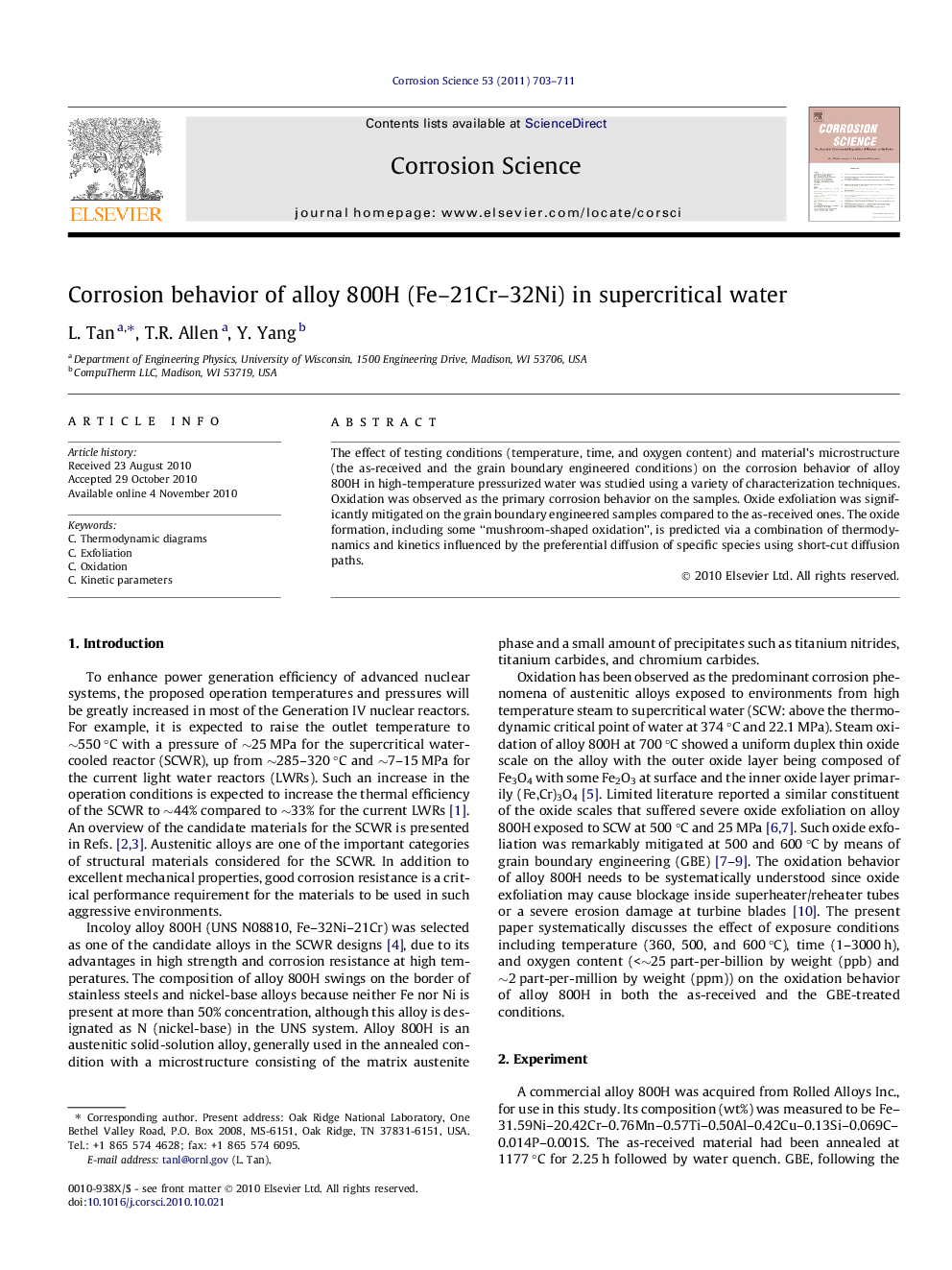| Article ID | Journal | Published Year | Pages | File Type |
|---|---|---|---|---|
| 1470249 | Corrosion Science | 2011 | 9 Pages |
The effect of testing conditions (temperature, time, and oxygen content) and material’s microstructure (the as-received and the grain boundary engineered conditions) on the corrosion behavior of alloy 800H in high-temperature pressurized water was studied using a variety of characterization techniques. Oxidation was observed as the primary corrosion behavior on the samples. Oxide exfoliation was significantly mitigated on the grain boundary engineered samples compared to the as-received ones. The oxide formation, including some “mushroom-shaped oxidation”, is predicted via a combination of thermodynamics and kinetics influenced by the preferential diffusion of specific species using short-cut diffusion paths.
Research highlights► Testing conditions and sample microstructures showed effects on corrosion behaviors. ► EBSD and FIB/TEM were used to characterize microstructure in addition to SEM/EDS and XRD. ► The formation mechanism of mushroom-shaped oxidation is proposed. ► Oxidation thermodynamics and kinetics predict and interpret the corrosion behaviors.
